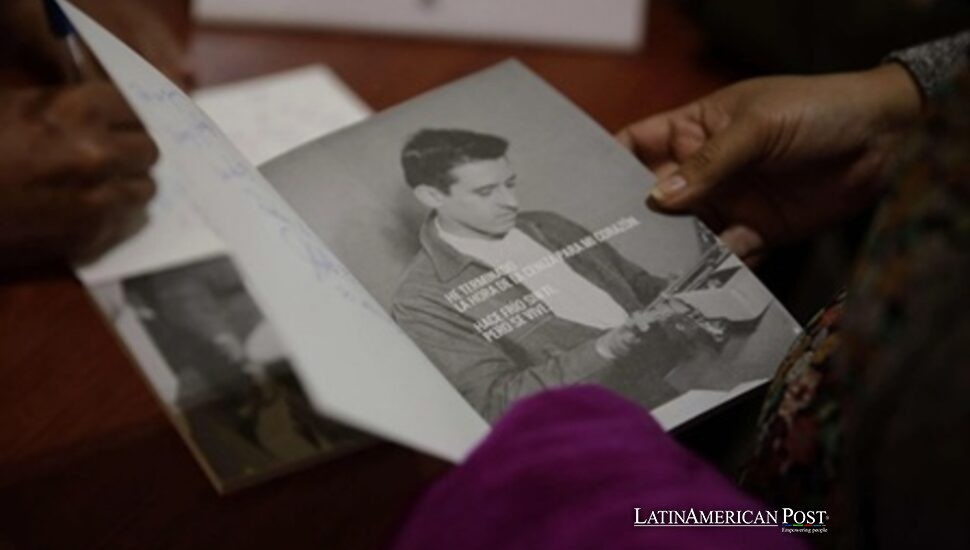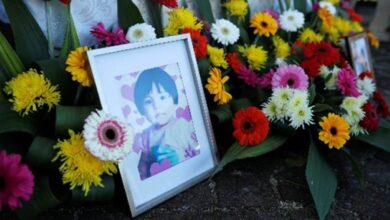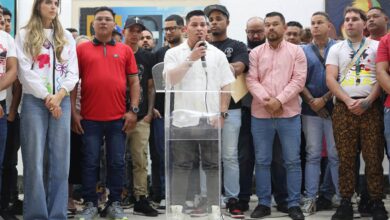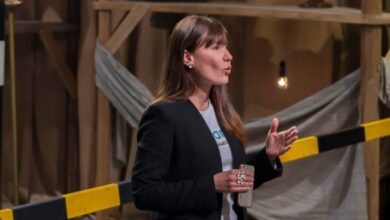Salvadorean Poet Murder Cold Case Marks Fifty Years of Mystery

Fifty years ago, renowned Salvadoran poet Roque Dalton was murdered under murky circumstances, and his body was never found. The literary genius who championed revolutionary ideals remains a haunting presence in El Salvador, where unanswered questions persist about who took his life.
A Revolutionary Voice, Cut Short
Roque Dalton (1935 – 1975) was highly regarded as a top literary figure from El Salvador. Julio Cortázar, Mario Benedetti, and Elena Poniatowska praised him for his language skills and sharp humor. His writings were bold, combining gentle thoughts about love and death with a steady dedication to revolutionary shifts. Dalton held solid convictions, which caused people to admire him and disagree with him. In particular, he supported fighting with weapons to end the oppressive government during his lifetime.
Dalton’s life was as multifaceted as his poetry. While he produced poems of lyrical beauty, he also wrote pointed political essays, practical guerrilla guidelines, and impassioned historical analyses. This breadth of output revealed a man who saw art not merely as an aesthetic expression but as a tool to ignite social transformation. Yet his revolutionary idealism cost him dearly. In May 1975, fellow insurgents in the Ejército Revolucionario del Pueblo (ERP)—one of the factions that later formed the FMLN guerrilla army—accused Dalton of being a CIA spy. They branded him a traitor and executed him under shadowy circumstances, a “revolutionary tribunal” thinly veiling what many have since called an egregious internal purge.
Although the ERP leadership eventually admitted Dalton’s killing was a mistake, no official resolution ever materialized. Dalton’s remains were never recovered, compounding the tragedy for his family and supporters. His widow, Aída Cañas, and two sons, Juan José and Jorge, have spent decades demanding legal accountability from those they hold responsible. To them, the enduring absence of Dalton’s body stands as a stark reminder of El Salvador’s broader inability—or unwillingness—to confront wartime atrocities fully.
The Specter of Impunity
During El Salvador’s long civil war (1980–1992), the country’s U.S.-backed military battled against the FMLN, which included the ERP. After peace accords were signed in 1992, an amnesty law effectively shielded individuals on both sides from prosecution for conflict-related crimes. This all-encompassing legal shield frustrated the Daltons’ calls for justice. They repeatedly insisted that leading figures who ordered or carried out the poet’s execution should face criminal charges and reveal the location of his remains.
Joaquín Villalobos, once the ERP’s supreme commander, is among the most contentious figures. Dalton’s supporters believe Villalobos personally fired the gun, which ended the poet’s life. Following the war, Villalobos shifted drastically to the political right, moving to London and advising various governments on counterinsurgency. He has acknowledged what happened as an “error de juventud” (“youthful error”) but has refused to provide detailed information about the killing.
nother ERP leader, Jorge Meléndez, remained in El Salvador and became active in mainstream politics. He headed Protección Civil under two FMLN administrations—an appointment that outraged Dalton’s family, who repeatedly requested that the government remove Meléndez and reopen the murder investigation. They saw only inaction and silence.
Despite some symbolic recognitions—such as a postage stamp commemorating Dalton and his inclusion in official anthologies—no definitive legal or historical reckoning ever occurred. The questions remain: who exactly pulled the trigger, who ordered the execution, and where was Dalton buried? Each question is a sore spot. The sore spot has grown worse over fifty years. It reflects a national unwillingness to examine troubling events of the past thoroughly.
An additional shadow extends over the left itself. Critics from the political right seize on Dalton’s killing as evidence of how “the left devours its own,” while many left-leaning Salvadorans wrestle with guilt and confusion over how their movement allowed such a grisly act to transpire in the name of revolution. In this confusing area of refusals, partial truths, as well as doubt, Dalton’s murder remains a one-of-a-kind instance of how intense devotion to ideas can change into the sad killing of a brother.
A Legacy Still Unfolding
Ironically, while the circumstances of Dalton’s death remain controversial, his literary and cultural stature has only grown. Official bodies under conservative and progressive Salvadoran governments have embraced him as a national treasure, validating the power of his poetry to speak across decades. Academic conferences, journals, and documentary films—like Tina Leisch’s Roque Dalton: fusilemos la noche (2013)—continue to probe his life and celebrate the vibrancy of his writing.
At the same time, the figure of Roque Dalton has become almost mythic: a bohemian poet with an epic capacity for both drinking and love, a “dreamer” caught in the crossfire of Salvadoran politics. Such portrayals, while captivating, risk overshadowing Dalton’s serious commitment to radical change and overshadowing the real injustices that cost him his life. When corners of academia or political circles downplay his militant Marxism, they risk sanitizing the very conviction that shaped his every verse and action.
Fifty years on, Dalton’s family persists in their quest for answers about his final hours and what became of his remains. Though it seems improbable that those directly involved will ever stand trial, the Daltons maintain hope that some form of truth commission or transitional justice process could shed light on the murder. Even if formal justice appears unattainable, a collective reckoning—a thorough airing of what truly happened—might at least allow the wound to heal.
Dalton’s story clearly shows El Salvador’s intricate work in bringing together its past revolution and current uncertain times. Most importantly, Dalton remains important as social groups develop across Latin America and try to understand changing political connections and developing beliefs. His disrespectful humor and firm certainty continue to motivate people. In his poems, they see a constant trust: words can make societies act when used with a goal.
Also Read: Who Killed Gaitán? Conspiracies Behind the Assassination That Changed Colombia
Yet, as his cultural footprint expands, the silence surrounding his murder remains deafening. Until those who orchestrated or executed Dalton’s killing come forward with undisputed truth, the poet will remain an emblem of both El Salvador’s unhealed wounds and its irrepressible pursuit of justice. In the hush of unanswered questions, Roque Dalton’s voice still echoes—demanding that the country confront its past and daring it to dream of a more just future.





